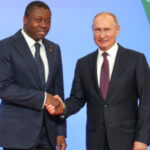At least thirty-one people were killed in two separate attacks carried out by Mali’s military forces and allied militias in the central Segou region, according to a report released on Tuesday by Human Rights Watch. The attacks, which targeted villages in an area known for the presence of al Qaeda-linked insurgent groups, have raised serious concerns about civilian safety and potential human rights violations.
The first attack took place on October 2 in the village of Kamona, where security forces and local militias reportedly killed at least twenty-one men and set fire to multiple homes. Human Rights Watch said survivors described the operation as sudden and brutal, with civilians caught between armed forces and insurgent activity in the area. Many residents were forced to flee the village, leaving behind their homes and belongings, heightening fears of long-term displacement and loss of livelihood.
A second attack occurred in the village of Balle, roughly fifty-five kilometers from Kamona, where at least ten people, including one woman, were killed. Witnesses described similar scenes of violence, with families unable to escape the targeted operations. The HRW report highlights that these attacks, carried out under the guise of counter-insurgency operations, disproportionately affected civilians who were not directly involved in militant activities.
Human rights organizations have expressed alarm at the repeated targeting of villages in central Mali. HRW called on the Malian government to launch independent investigations into both incidents, hold perpetrators accountable, and implement measures to protect civilians living in conflict zones. The organization emphasized that military operations must comply with international humanitarian law and avoid unnecessary harm to non-combatants.
The Segou region, like much of central Mali, has faced escalating violence over recent years, as the army and local militias engage insurgent groups while civilians often bear the brunt of the fighting. Analysts say that a combination of weak governance, limited security presence, and the spread of extremist groups has left communities highly vulnerable.
Locals in the affected villages are now grappling with trauma, fear, and uncertainty about their future. Survivors report that homes, farms, and personal property were destroyed, further exacerbating poverty and insecurity. Humanitarian agencies warn that without urgent protective measures, further attacks are likely, and displaced populations may face prolonged hardship.
The HRW report underscores the urgent need for international attention to Mali’s ongoing conflict, highlighting that civilians continue to pay a heavy price despite efforts by the Malian government and international partners to restore security. It calls for immediate action to ensure that military operations in the region do not continue to result in civilian casualties and that justice is delivered for those affected.













Leave a comment